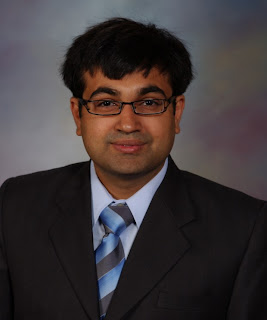
Recently an article came out about Dr. Thomas Borody claiming that a fecal transplant might be used for a whole host of things from multiple sclerosis, to Crohn's, to Parkinson's disease. In the article nurse Suzanne Heskett had Crohn's and seems like she had a bad flare up in 2001. She was going to the bathroom 18 times a day and thought she would have to get part of her colon removed. In trying to help her dire health situation she went to Dr. Thomas Borody (who even I will admit is a gastro star doctor in Australia and has done tremendous research in gastroenterology in general).
Suzanne had a nasal tube and three different donors donate their "stuff" which took about 5 hours and she felt better right after and several months later her condition improved. What is interesting is that 11 months after having a colonoscopy and Dr. Borody didn't even recognize she had Crohn's. Borody first did a fecal transplant for Crohn's in 1988 according to this journal article.
Borody goes on to say that he has done a fecal transplant for someone with a young person with rheumatoid arthritis and it went away after the transplant. He also claims that he has "cured" dozens of people with colitis and Crohn's. Dr. Borody also claims that three Parkinson's patients was helped by fecal transplants. Fecal transplant even has the potential to help patients with Alzheimer's, autism, obesity, rheumatoid arthritis, acne, insomnia, major depression, autism, and even diabetes.
I am a little skeptical of the claims that fecal transplants will "cure" Crohn's, however I don't think a fecal transplant would hurt Crohn's patients. Speaking as someone who actually had a fecal transplant in 2013 I did feel a little better after the transplant, however still had a flare up (which could have been caused by the c diff I had). However, I feel pretty great now and some days don't even realize I have Crohn's. All the research I have seen tends to show fecal transplant work better for ulcerative colitis.
If you don't live in Australia Dr. Thomas Borody will charge $10,000-$15,000 and you can be expected to stay between 2 and 10 weeks and have to have a doctor that will resume care after the procedure. The first step however is to have an initial interview which would cost $150. However, Borody has been doing fecal transplants since the 1980's and as I wrote here does 5-6 per week and I estimate by now has done close to 2,000 fecal transplants.
The application of fecal transplant for multiple illnesses sounds exciting. Perhaps the reality will be it won't be apply to as many things as possible but could have an impact on people with Crohns, ulcerative colitis, and other major diseases. Hopefully, with time we will learn even more about fecal transplants and how they can help hundreds of thousands if not millions of people suffer less and enjoy life more.
The application of fecal transplant for multiple illnesses sounds exciting. Perhaps the reality will be it won't be apply to as many things as possible but could have an impact on people with Crohns, ulcerative colitis, and other major diseases. Hopefully, with time we will learn even more about fecal transplants and how they can help hundreds of thousands if not millions of people suffer less and enjoy life more.







